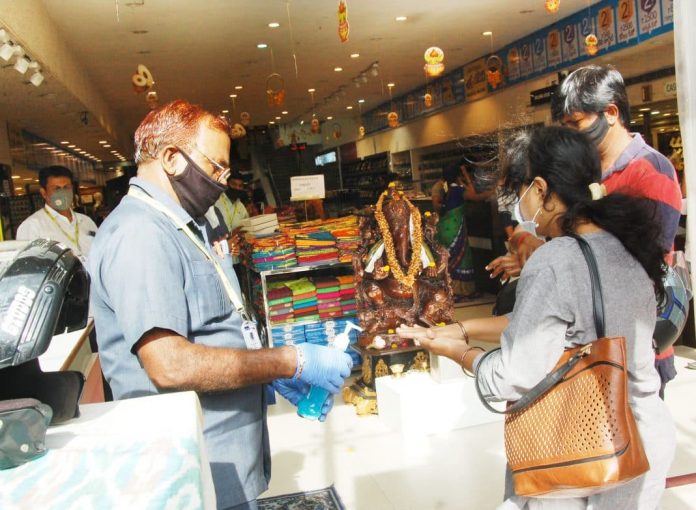The global digital agency Wunderman Thompson (WT) South Asia recently conducted a lockdown study in 32 Indian cities in an attempt to identify mindset and behaviour shifts relating to the pandemic. The results offer a glimpse of what our priorities will be in the future. While basically a survey to do with brands and marketing (WT is part of advertising giant WPP), it quotes other studies to buttress its conclusions. The findings include:
- Hygiene consciousness is likely to make lasting structural changes in behaviour. Many new categories like sanitisers have covered years’ worth of education in a couple of months. The increasing demand for hygiene solutions has created a huge market for tailor-made products and solutions.
- The survey showed that mental health issues among Indian families and individuals are spreading almost as fast as the virus. This is the result of virus fears, isolation and fear of recession. With exam delays, hiring freezes and salary cuts rapidly becoming the new normal, every second person surveyed confessed to a rise in overall stress, irritability and poor sleep.
- The survey quoted another study which says that online mental wellness apps have seen a 30 percent spike in Indians calling in to discuss their anxieties connected to the Covid-19 pandemic. Google Trends data also says that from March-April 2020, the search for the term “depression” was at a peak when compared to historic data over the last 12 months.
- Indoor fitness has seen a sharp spike. Every second person surveyed had joined an online fitness class or downloaded a home workout app. A majority say that even after lockdown, they would carry on with fitness classes online, instead of going back to gyms.
- Self monitoring of health parameters will get a huge boost says the survey. Digital integration will allow for more efficient self-monitoring. This also offers huge potential for remote patient monitoring where health providers can engage with patients virtually. This could change the format of the traditional family doctor consultation.
- Earlier studies have shown that 21 days is the minimum time required to change a habit. With the extended lockdown, the average Indian has got way more time to change habits and priorities. The main change according to the survey is to do with germ phobia. Indians, it seems, are “seeing” germs everywhere and the opening up will only see paranoia increase. As the survey says; “We will look at lift buttons and elevators and start seeing germs. We will sit in shared taxis and wonder who sat there before us. We will continue to keep our groceries and veggies in the sun for a bit, hoping that will kill the germs. We will look at schools and offices and see germ hangouts. Then, when we come back home, we will want products that destroy the germs that we may have collected on our way back, before they come inside with us.”
- A Barometer study conducted in April 2020 found that personal cleaning products like soaps, handwashes and sanitisers had a 56 percent net increase in purchases. Products like antiseptic liquids, anti-bacterial liquids and wipes had a 51 percent net increase in purchase.
- Knowledge about health issues has shown a sharp spike. Today, Indians, says the survey, are keenly aware of having a whole backlog of deficiencies and every food item that is purchased is seen through the potential of an immunity builder. The survey says that 94 percent respondents said that everyone in the house needs an immunity boost, mainly multivitamins and Vitamin D supplements.
- Those surveyed showed a new found faith in vaccinations, something most adult Indians were indifferent about earlier. The faith in vaccinations—and a Covid-10 vaccine when available—is seen as a major factor in building immunity. This will also, says the survey, lead to a change in attitude. Earlier, lifestyle changes were always planned for some distant future or after a health crisis.
- The new rise in health awareness will possibly change attitudes towards preventive medicine, till now, largely neglected by most Indians.
- The trend is towards what is called “hard health”, where awareness of treatments, ailments, cures and side effects will become more universal. One example is sanitisers. Google India searches in March shows that users were not merely looking at sanitisers per se but specifically, alcohol-based sanitisers.
- The move to “hard health” will possibly create a new generation of challenger brands, new players who do not have a history of being active in the segment. From a “feel good” market, we could see a switch to a “do-good” market.
- The future is likely to be “phygital”. There will be a rise in E-pharmacies or wellness chains that have a digital arm, including an increase in telemedicine as hospitals and doctor’s clinics are seen as a potential source of infection. This could also result in more doctors going digital.
- Another new trend is “Deep-clean”. As demand grows for better disinfection and hygiene in public spaces like gyms, malls, multiplexes, airports and corporate complexes, it opens up avenues for new players to enter the hygiene/health market.
The conclusion from the results of the WT survey suggests that we will see a new India, and a new Indian, emerge from the wreckage caused by the Covid-19 pandemic: maybe more paranoid, less adventurous, but certainly more aware and conscious of our health and its implications. The attitudinal change to “hard health” in a country where hygiene and health consciousness is given such low priority cannot be a bad thing.


